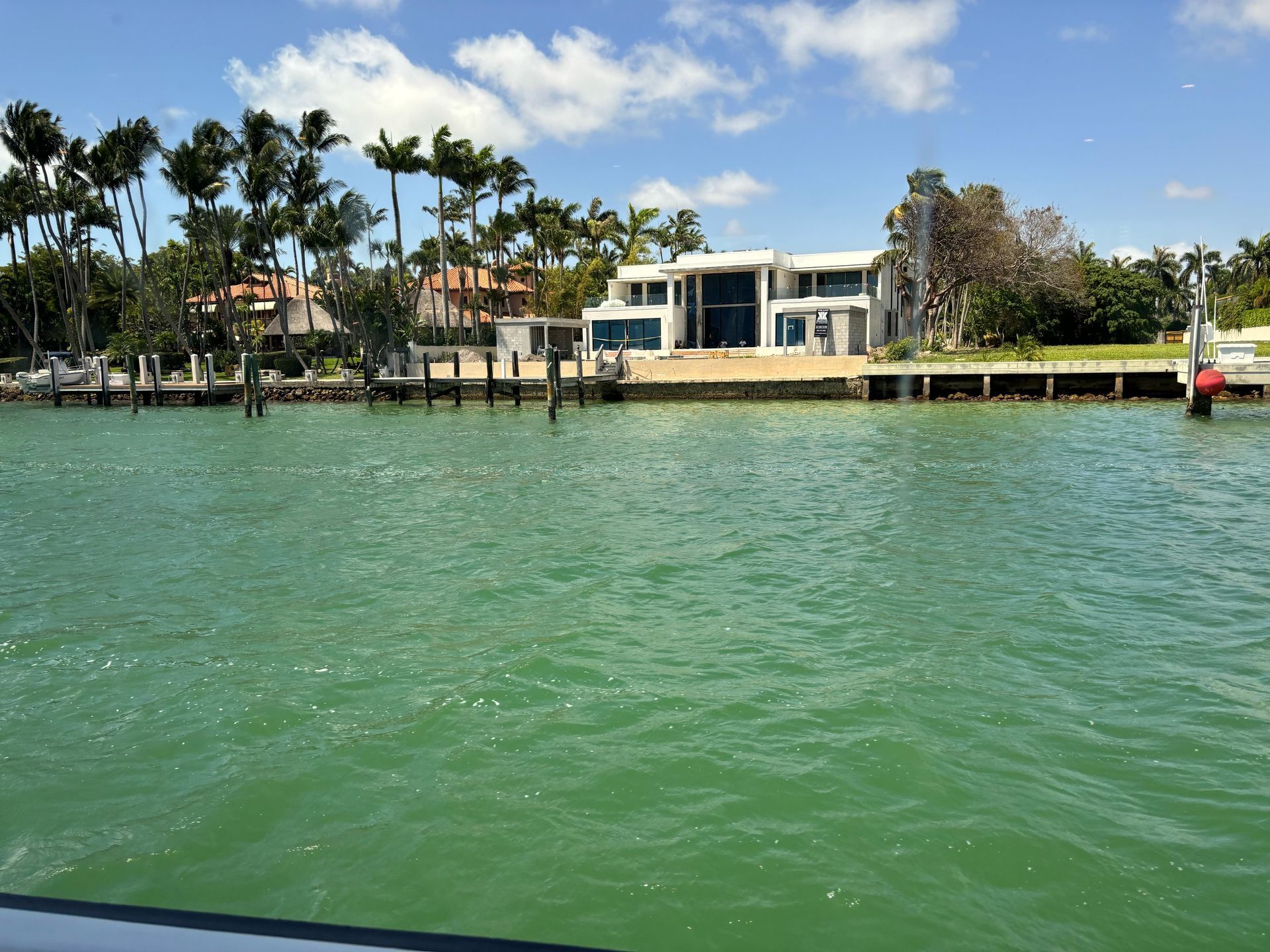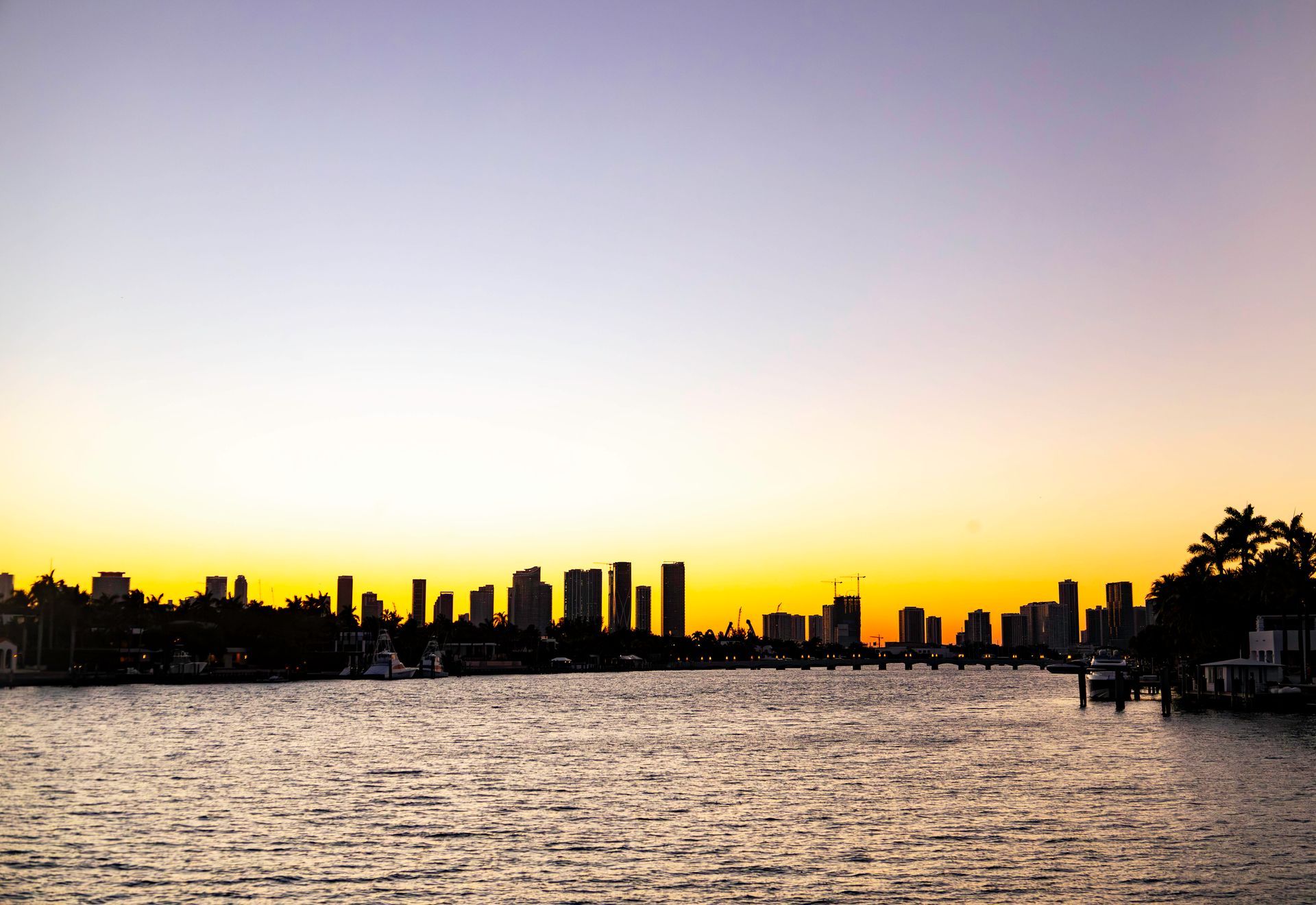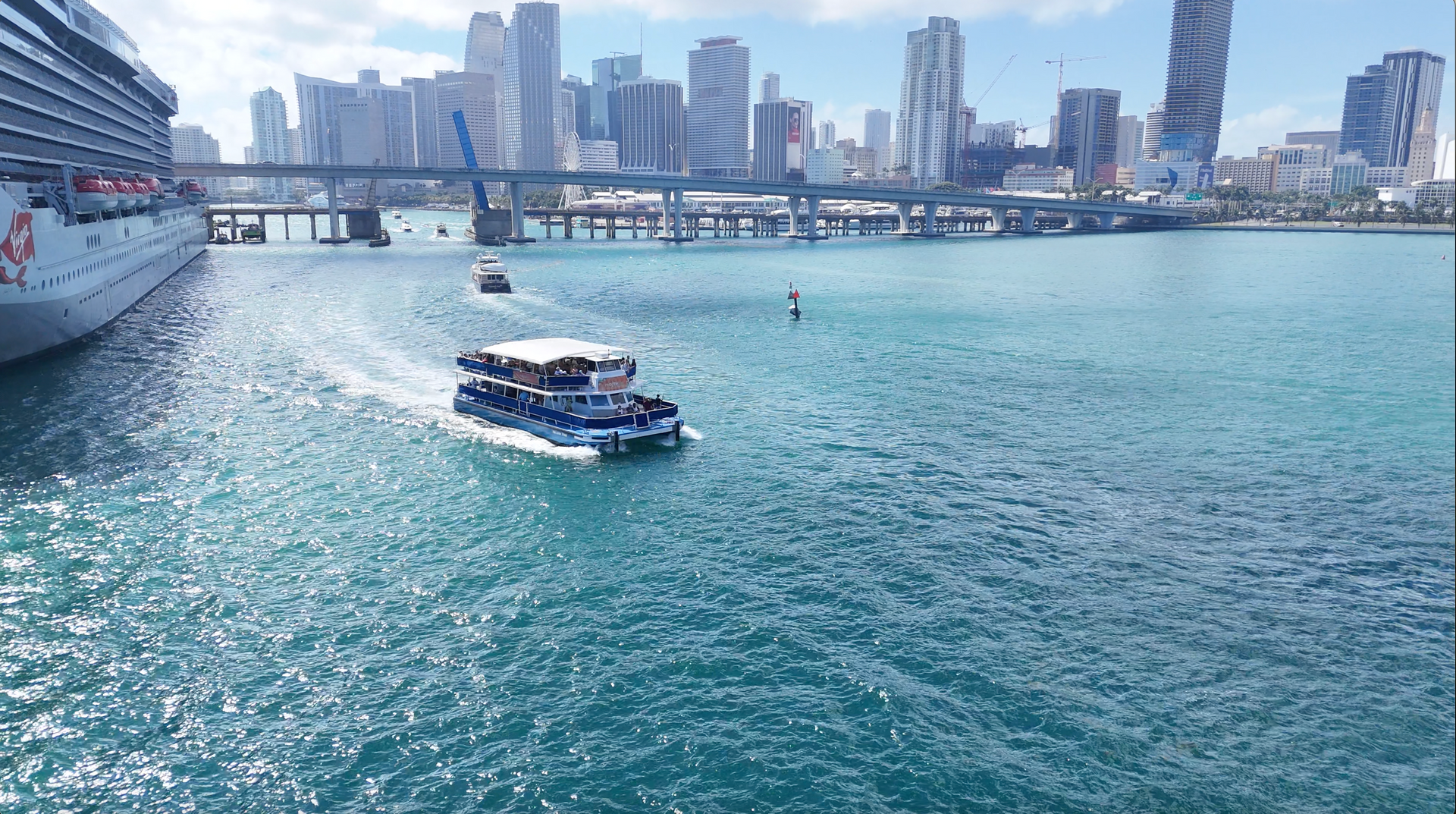Reservations only - Book Now - For Questions please Call 786-714-1314
Accurate Weather in Miami: Your Essential Weather Forecast Guide
Accurate Weather in Miami: Your Essential Weather Forecast Guide

If you’re searching for ‘weather in Miami’, you probably want to know two things: how’s the weather right now, and what will it be like in the coming days? Miami’s climate serves up both gloriously sunny days and impressive thunderstorms, depending on the season. Here, we shed light on the current conditions and the forecast ahead to keep your plans on the sunny side.
Key Takeaways
- Miami’s tropical climate features hot, humid summers with substantial rainfall and mild winters with temperatures averaging around 69.2 °F.
- The city enjoys an average of 248 sunny days a year with the clearest skies from mid-October to late May, making it known for being ‘mostly sunny’.
- Extreme weather events like hurricanes, tornadoes, and waterspouts are part of Miami’s unique climate, with an increasing impact from climate change through rising sea levels and more frequent heatwaves.
Miami FL Weather Overview
Miami’s balmy air and warm embrace are no happy accident; they’re gifts from its tropical monsoon climate. Imagine a place where summers sizzle with humidity and winters are but a mild interlude — that’s Miami for you. Even in the coldest months, the mercury coyly hovers around 69.2 °F, a warm welcome for any winter escapist. Come May, the city transitions into its wet season, where the heat cranks up to the mid 80s and low 90s, and the air gets so thick you could cut it with a knife.
The rains, when they come, do not hold back. Miami is lavish with its showers, pouring an annual average of 61.9 inches of rainfall, much of it during the wet season as El Niño and La Niña play their parts in the weather’s drama. As the wet season sets in, the dew point leaps over the 70°F mark, and the temperatures make a steady climb to the upper echelons of the 80s and 90s. It’s a tropical dance of heat and moisture that gives Miami its distinctive, sultry weather pattern.
Mostly Sunny Days: Miami's Signature Weather
On any given day in Miami, chances are the sun is out there, ruling the sky with its golden scepter. The city basks in roughly 248 sun-kissed days each year, which translates to an impressive 2,943 hours of sunshine out of the 4,383 hours possible. That’s an average of about 8 hours and 3 minutes of sunlight per day, with the sun making its presence known during 67.1% of daylight hours. It’s no wonder Miami is synonymous with the term ‘mostly sunny’.
The skies are at their clearest from mid-October to late May, painting a perfect backdrop for the city’s vibrant life. February is particularly noteworthy, boasting around 70% sky clarity, while April is the undisputed champion of sunlight, gifting Miami with about 9 hours and 26 minutes of sunshine per day. Whether you’re lounging on the beach on a Friday or exploring the city, the weather is likely to be on your side.
Cloud Coverage in Miami
Yet, even the sunniest city wears a shawl of clouds from time to time. In Miami, the cloudier episodes are mostly scheduled from late May to September, when nimbostratus and stratus clouds often gatecrash the blue-sky party. These clouds are the harbingers of moisture, a prelude to the city’s theatrical thunderstorms and showers. But fear not, for the mostly clear days are never too far behind.
The forecast’s color-coded cloudiness is akin to a mood ring for the sky, with darker shades signaling clear horizons and lighter ones indicating a cloudier ensemble. For those precise moments when the sun plays hide and seek behind the clouds, just remember that May 2nd often marks the beginning of this overcast period, culminating in the peak of cloudiness come September. So, make sure to enjoy the clear skies while they last.
Thunderstorms and Showers: When to Expect Them in Miami
Thunderstorms in Miami are not merely weather events; they’re a season of their own. From late spring through summer, the city averages about eighty days of thunderous symphonies. The crescendo of this thunderous season peaks from June to September, with the traditional rainy season soaking the city from mid-May to mid-October. It’s during this time that the skies often unleash their dramatic downpours, sometimes as early as 7:53 PM EDT, only to be followed by the rejuvenating scent of rain-soaked earth.
The early rainy season, especially from late May through June, can be particularly eventful, with the potential for severe thunderstorms that occasionally bring hail and gusty winds to the mix. This period is as unpredictable as it is spectacular; sometimes, the thunderstorms arrive abruptly, other times they meander into a regular pattern over weeks. By the time mid-September rolls around, the rainfall becomes more variable, painting a picture of unpredictability that is quintessentially Miami.
Miami's Unique Weather Phenomena
Amidst the regular weather patterns, Miami also hosts a series of unique meteorological events that set it apart. Statistically, it’s the major city most likely to feel the wrath of a hurricane, especially during the peak period from mid-August to the end of September. The city’s memory is etched with the scars of past hurricanes like:
- The Great Miami Hurricane of 1926
- Betsy
- Andrew
- The more recent Irma
These are sobering reminders of nature’s might and the importance of preparedness.
Beyond hurricanes, Miami’s skies also witness their fair share of tornadoes and waterspouts. While the city is spared from the more violent tornadoes that haunt other parts of the United States, these swirling dances of wind and water are not uncommon.
Moreover, as the globe warms, Miami feels the heat quite literally, with projections of more frequent and intense heatwaves adding to the city’s list of weather challenges that have ruled its climate.
Planning Your Day in Miami: Weather Tools and Resources
When it comes to daily plans or nighttime stargazing, Miami’s short-term weather forecasts are your trusted companions. Boasting an accuracy rate of over 80%, especially for cloud cover predictions within the next 12 hours, these forecasts are as reliable as they come. This is particularly handy for astronomers who gaze upwards, searching for celestial events that could be obscured by cloud cover.
Whether you’re planning a beach day or an evening under the stars, a quick search of the forecast can ensure that the weather plays along.
Staying Safe During Miami's Extreme Weather
While Miami’s weather is mostly a paradise, it’s not without its extremes. Hurricanes are a reality here, and having a hurricane plan in place is not just wise, it’s essential. Preparation goes beyond just a plan; it’s about:
- Building an emergency kit
- Being in the know when a storm approaches
- Post-storm safety, including wearing protective clothing, safety shoes or boots, and eye protection
- Using generators in well-ventilated areas to avoid injuries and carbon monoxide poisoning
These precautions help ensure safety during and after a hurricane.
Driving post-storm should be avoided unless absolutely necessary, as floodwaters can be treacherously deceptive. And in the aftermath, downed power lines present a hidden danger; they should be reported immediately to prevent accidents. When power outages lead to heat and sun exposure, sunscreen, plenty of water, and portable fans become your best friends.
Best Times to Visit Miami Based on Weather
Contemplating a trip to Miami? The weather suggests that winter, spring, and fall might be the perfect times to drop by. Winter, from December to mid-February, is peak season for a reason: you’ll find mostly sunny days and minimal rainfall, making it ideal for both beachgoers and city explorers.
Spring and fall offer their own charms with comfortable temperatures and lower rain chances, not to mention the bonus of less crowded tourist spots. If you’re on the lookout for a deal, visiting during these seasons could also mean cheaper accommodation and a more relaxed atmosphere.
How Climate Change is Affecting Miami's Weather
The impact of climate change on Miami’s weather is undeniable and increasingly concerning. Rising sea levels are no mere predictions; they’re a reality that contributes to frequent flooding and complications for the city’s infrastructure. As Miami grapples with this watery predicament, debates rage over the effectiveness of potential solutions like elevating buildings or constructing sea walls. Flooding isn’t the only concern; the threat extends to buildings and streets, all at risk from both storm surges and riverine flooding.
The climate crisis also exacerbates the city’s vulnerability to storms and extreme heat, especially in densely developed areas. Weather patterns are becoming more erratic, with El Niño and La Niña influencing Miami’s dry and wet seasons in new ways, leading to cooler, wetter, or warmer, drier conditions respectively. And as water stress looms on the horizon, the risk of drought becomes another challenge for Miami to navigate.
Summary
In the dance of sun and storm, Miami’s weather tells a story of beauty, power, and resilience. From the mostly sunny days that define its character to the thunderstorms that punctuate its summers, Miami offers a climatic experience as rich and varied as the city itself. Whether you’re a resident planning your day, a tourist seeking the best time to visit, or a global citizen concerned about climate change, understanding Miami’s weather is crucial. So, go out there and embrace the sunshine, prepare for the storms, and always stay weather-aware in the Magic City.
Frequently Asked Questions
How many sunny days does Miami have annually?
Miami has about 248 sunny days every year, making it a great destination for sunshine lovers.
When is the rainy season in Miami?
The rainy season in Miami usually runs from mid-May to mid-October, with the highest likelihood of thunderstorms occurring from June to September. It's best to be prepared for rain during these months.
What are some of the unique weather phenomena in Miami?
Miami experiences hurricanes, tornadoes, waterspouts, and heatwaves, making its weather quite diverse and unique.
How is climate change affecting Miami's weather?
Climate change is causing rising sea levels, more flooding, increased water stress, and the potential for more severe heatwaves and droughts in Miami. These changes are already impacting the city's weather.










